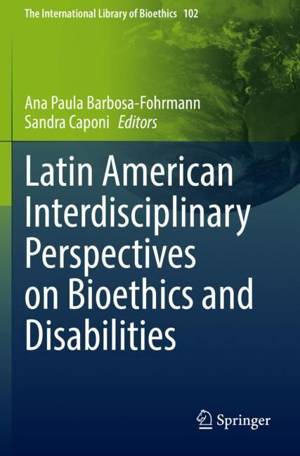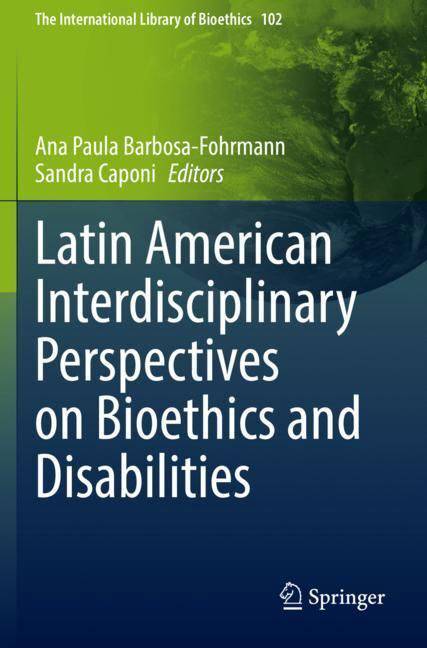
- Retrait gratuit dans votre magasin Club
- 7.000.000 titres dans notre catalogue
- Payer en toute sécurité
- Toujours un magasin près de chez vous
- Retrait gratuit dans votre magasin Club
- 7.000.0000 titres dans notre catalogue
- Payer en toute sécurité
- Toujours un magasin près de chez vous
Latin American Interdisciplinary Perspectives on Bioethics and Disabilities
Description
This book provides a critical analysis of the experiences of people with disabilities in Latin America. It covers a wide range of topics related to intellectual and psychosocial disabilities. Written by Latin American researchers and adopting an interdisciplinary perspective, it provides an original sociocultural contribution to bioethics and disability studies literature. It presents an in-depth overview of philosophical, ethical, legal, political and social issues. At the same time, it offers a contribution to the global scientific community inasmuch it discusses theoretical references from South America in connection with those from Europe and the United States. The basic questions dealt with range from criteria for human flourishing to questions of philosophy of mind, and neuroethics through phenomenological and aesthetic approaches to intellectual and psychosocial disabilities. The legal and political investigations explore the rights of those affected and the processes of their self-organization. The authors address the dynamics of medicalization and demedicalization, the practices of psychiatric institutionalization and the treatment of children with antipsychotics. This book appeals to psychologists, social scientists, bioethicists, healthcare personnel, philosophers, and lawyers working with cases related to people with disabilities.
Spécifications
Parties prenantes
- Editeur:
Contenu
- Nombre de pages :
- 151
- Langue:
- Anglais
- Collection :
- Tome:
- n° 102
Caractéristiques
- EAN:
- 9783031228933
- Date de parution :
- 02-02-24
- Format:
- Livre broché
- Format numérique:
- Trade paperback (VS)
- Dimensions :
- 156 mm x 234 mm
- Poids :
- 231 g

Les avis
Nous publions uniquement les avis qui respectent les conditions requises. Consultez nos conditions pour les avis.





